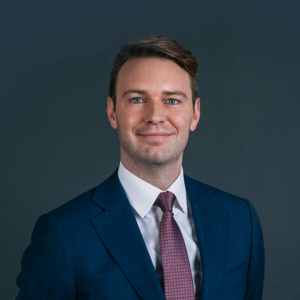Uber case law update
Uber, founded in San Francisco in 2009 and operating in London since 2012, is ubiquitous. Since then, it has been the subject of significant judicial consideration in a number of fora. The most important recent decisions are summarised here:
R (United Cabbies Group (London) Ltd) v Westminster Magistrates’ Court
On 22 September 2017, TfL refused to grant Uber a private hire licence to operate in London, citing concerns about whether it was a “fit and proper” person. On appeal, the Chief Magistrate granted a 15-month licence, TfL no longer opposing its grant. United Cabbies Group (London) Ltd, a mutual society representing Hackney Carriage Drivers in London, challenged that decision by way of judicial review on grounds that (i) the Chief Magistrate had failed to make any finding as to whether Uber was a fit and proper person, and (ii) her decision was tainted by bias because her husband, Lord Arbuthnot, was connected to organisations with an interest in Uber.
On 26 February 2019, the Lord Chief Justice and Supperstone J dismissed the claim. They held that it was “abundantly clear” that the Chief Magistrate had applied the correct test. After summarising the law as to bias, and opining that “the fair-minded observer does not assume that the interests of husband and wife are indistinguishable”, their Lordships found that the “circumstances would not lead a fair-minded and informed observer to conclude that there was a real possibility that the [Chief Magistrate] was biased”.
Philip Kolvin QC appeared for Uber.
Reading BC v Ali [2019] EWHC 200 (Admin)
Reading BC had sought to prosecute Mudassar Ali, a private hire driver licensed by TfL, alleging that his having waited for a booking through the Uber App amounted to plying for hire because one could see his approximate position on a map on that App. The Chief Magistrate dismissed the charges. Reading BC appealed by way of case stated to the Divisional Court.
Flaux LJ upheld the Chief Magistrate’s decision to dismiss the prosecution: use of the Uber App does not amount to plying for hire for three reasons: First, there must be an exhibition of the vehicle in a way that invites members of the public to hire it, for which the depiction on the App does not suffice. Second, it was irrelevant that Uber’s terms and conditions showed the driver to be contracting directly with the passenger. Third, the fact that Mr Ali waited for custom was inconsistent with plying for hire; if a member of the public approached him, he would have refused the fare.
Philip Kolvin QC appeared for Mr Ali.
Uber BV v Aslam [2018] EWCA Civ 2748
Although not in the licensing context, the decision in Aslam has far-reaching consequences, and may yet affect this arena. Yaseen Aslam brought a claim against Uber asserting that he was a “worker” and that Uber had failed to pay him the minimum wage. The Employment Tribunal dismissed Uber’s argument that Mr Aslam was self-employed, agreeing with him that Uber employed him. The Employment Appeal Tribunal upheld that decision, dismissing Uber’s appeal. A further appeal was brought to the Court of Appeal.
The Master of the Rolls and Bean LJ agreed with the Employment Appeal Tribunal (Underhill LJ dissenting) that the Employment Tribunal’s decision was correct, highlighting the artificiality of the contractual documents which contained “a high degree of fiction”.
Uber Britannia Ltd v Brighton & Hove CC
Brighton & Hove CC refused to renew Uber’s operator’s licence citing cross-border concerns predominantly relating to Uber permitting drivers who used its App to drive in Brighton while being licensed elsewhere. Uber’s appeal to the District Judge was allowed, with a licence being granted for the full five-year term.
Philip Kolvin QC appeared for Uber.
Since that time, the government has announced plans to introduce new legislation which will give licensing authorities greater powers to enforce standards against “out of town” vehicles. The headline reforms are national minimum standards to ensure consistency, enforcement powers applicable against any driver irrespective of the location of the licence, and a national licensing database. For a fuller consideration, see the article written by Matt Lewin and Tara O’Leary.
R (Uber London Ltd) v TfL [2018] EWCA Civ 1213; [2018] RTR 33
Uber is not always defending itself against actions brought by others. By this claim it sought to judicially review TfL’s decision to impose a requirement that private hire vehicle operators provide voice contact for riders. Mitting J held that TfL had failed to show that other less restrictive measures would not meet the level of protection required and that the requirement imposed was unlawful; he upheld the claim for judicial review, quashing the provision. TfL appealed to the Court of Appeal.
Gloster LJ allowed TfL’s appeal, holding that Mitting J had erred in his view that there was a less intrusive alternative to the requirement for voice contact. The voice contact requirement remained.
R (Delta Merseyside Ltd) v Knowsley MBC [2018] EWHC 757 (Admin)
Uber (by Uber Britannia Ltd) was the second claimant in this claim for judicial review, seeking to quash Knowsley MBC’s policy that had required drivers to sign a declaration that they intended to drive predominantly in the council’s area, and acknowledging that they faced revocation of their licence if they in fact predominantly drove elsewhere. Kerr J held that a licensed driver has the “right to roam”, and that it was impermissible to impose an obligation that a driver remains in any particular area.
Philip Kolvin QC and John Fitzsimons appeared for Uber.
Riccardo Calzavara
February 2019


